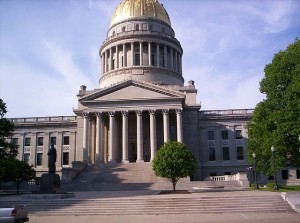![Venezuelan President Nicolas Maduro. Photo by Cancillería del Ecuador [CC BY-SA 1.0 (http://creativecommons.org/licenses/by-sa/1.0)], via Wikimedia Commons](http://occupyworldwrites.org/wp-content/uploads/2015/03/President_Maduro_diciembre_2014-232x300.jpg)
Venezuelan President Nicolas Maduro. Photo by Cancillería del Ecuador [CC BY-SA 1.0], via Wikimedia Commons
To consumers, the decline in oil prices over the last nine months has been a welcome turn of events. From the gas pump to our home utilities bills, we’ve welcomed the lower prices, and thus the extra money we have. We hear various talking heads espousing about how lower oil prices will stimulate growth and lead to a more vibrant economy.
That is, unless you live in a country that derives 95% of its economy from oil. We’ve talked about Venezuela on several occasions, and in one of our more recent articles, we discussed the collapse of the Venezuelan economy and the causes of the collapse. The effects of the drop in oil prices on an economy that was already struggling has been catastrophic.
During the years that Hugo Chávez was in power, he instituted large, sweeping social programs aimed at elevating the economic status of the poorest Venezuelans. What paid (and still pays) for these programs? Oil, or to be more specific, petrodollars from China in exchange for oil. When the bottom fell out of the oil market, the Chinese naturally started paying less for the oil. So, as the international price of oil fell, so did the living conditions of the people of Venezuela. Continue reading →




![Asbestos cleanup by volunteers, Detroit. Photo by Friend_in_Detroit (mcs asbestos debris) [CC BY-SA 2.0], via Wikimedia Commons](http://occupyworldwrites.org/wp-content/uploads/2015/03/Asbestos_Cleanup_by_Teenage_Volunteer_Workers_at_Michigan_Central_Station_-_Detroit_Michigan_USA_-_10_July_2009_-_1-300x199.jpg)
![Trade Ministers from TPP meeting in Vladivostok. Photo by East Asia and Pacific Media Hub U.S. Department of State [Public domain], via Wikimedia Commons](http://occupyworldwrites.org/wp-content/uploads/2014/11/Trade_Ministers_from_Trans-Pacific_TPP_Meeting_in_Vladivostok_7940097642-300x199.jpg)


![Venezuelan President Nicolas Maduro. Photo by Cancillería del Ecuador [CC BY-SA 1.0 (http://creativecommons.org/licenses/by-sa/1.0)], via Wikimedia Commons](http://occupyworldwrites.org/wp-content/uploads/2015/03/President_Maduro_diciembre_2014-232x300.jpg)
